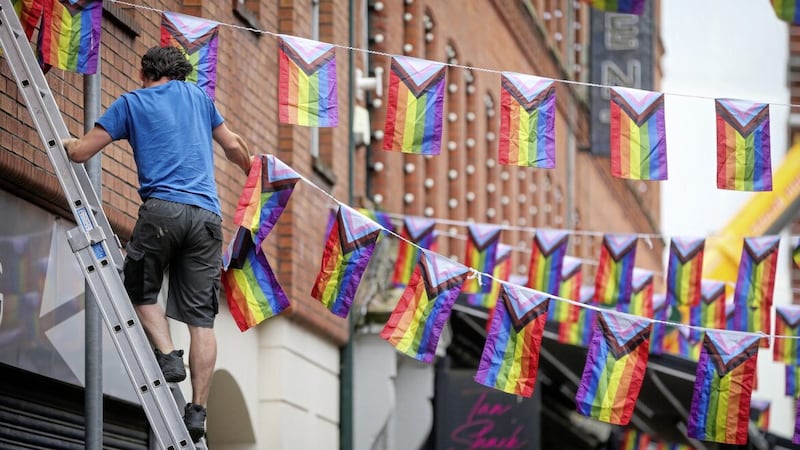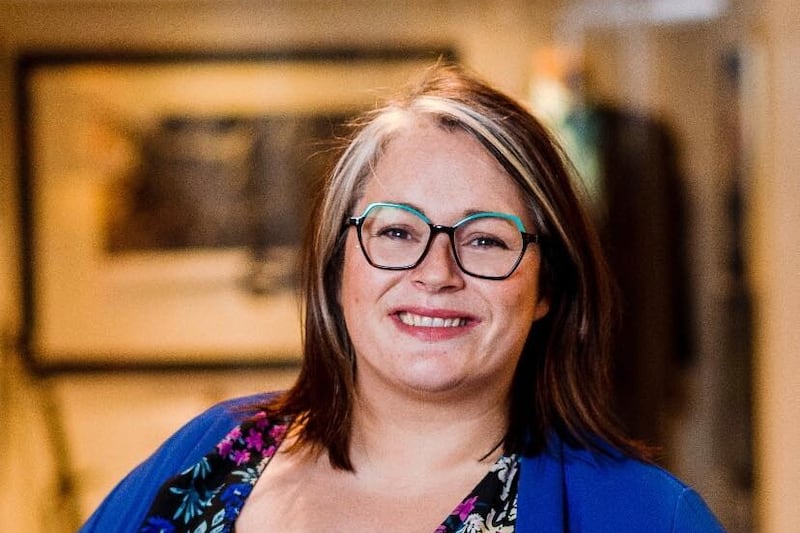I once served in a team with a white, gay, middle-class male. On the few occasions when we had to work closely together, I found his behaviour to be strange, perhaps even dismissive.
Often when I spoke he would pretend he didn't hear me. At other times he would look right through me before simply walking away mid-sentence.
On occasion, I would catch him gleefully mocking my enthusiasm or mimicking my behaviour and mannerisms.
This experience became exasperating on the days when I would dress in what would be termed a heteronormative feminine way.
During team meetings, his body language and facial expressions would, from my perspective, depict disgust and contempt when I entered the room, asked a question or queried a decision.
After two stark and pointed acts of dismissiveness, I began to question the driving force behind his behaviour.
The first incident occurred during a detailed conversation about a complex business issue. Reference was made to an expert in the field who this individual called by their first name.
Read more:New on Netflix: what will you be watching this weekend?
A colleague corrected him saying, "Shouldn't you call him 'doctor', I think he has a PhD?" to which he responded: "It doesn't matter, sure everyone has a PhD nowadays."
Under normal circumstances, such a statement could pass as a throwaway comment or perhaps even team banter. Yet, the contextual relevancy of this choice of words signalled otherwise, as my colleague and I (the only two team members with PhD qualifications) had recently fallen out of favour for challenging decisions made by senior management.
His commentary was not perceived by either of us to be innocent.
The second episode involved an attempt to make an apparent joke about female genitalia. This was greeted with nervous laughter from the team, which reflected how it was perceived to be far from a harmless wisecrack.
Aside from the fact that, had roles been reversed and a female made the same joke referring to male genitalia, it would not be well received, there were other colleagues who had spoken openly about their experiences of sexual assault and violence.
Growing concerned, I sought counsel from other people in the organisation. Responses were less than helpful. They included, 'He's gay, that's just the way he is', 'Don't take it personal' and, 'He's just so overworked, you have no idea what he is doing for the company', followed by that slam dunk of emotional invalidation and dismissiveness, 'I think you are just being paranoid'.
The identity markers of white, gay, male and misogynist were not part of my vernacular. Yet, the experiences depicted above are examples which help to illustrate how prejudice and discrimination can exist within – and be perpetrated by – marginalised communities.
The issue of misogyny among men is difficult to broach. Yet, the topic of misogyny among white gay men is even more complex, given the entrenched myth that the oppressed cannot oppress.
LGBT+ campaigner Maria Rodman writes: "Gay men – like the rest of us – are products of a patriarchal social structure, which feminist theorists believe is the root cause of female oppression in cultures throughout the world.
"This part isn't news. However, perhaps gay misogynists can be more dangerous to identify because... We unknowingly excuse gay men of their misogynistic tendencies, especially when it comes to verbiage."
Though both groups face oppression of varying degrees and types we do not share the same struggle. Homophobia and misogyny are tropes of dehumanisation driven by hatred, ostracism, stigmatisation and discrimination.
If we are serious about addressing these social ills and enhancing an authentic sense of solidarity, the first step towards equality must be calling out misogynistic behaviour when we see, feel or experience it.
This week, as Belfast celebrates Pride with its annual parade and a full programme of events, my hope is that space is created for critical conversation and reflection.
Rodam suggests that for true progress to be made, each of us must begin with acceptance that our 'oppression card' does not excuse us from these difficult conversations.
Not only should we examine our sense of solidarity but more importantly, we should question what we consider respect, tolerance and the pursuit of equality for all to look like and mean.
If we really wish to promote LGBT+ pride, we need to question the 'taken-for-grantedness' of the assumptions underpinning the movement and employ an intersectional approach so that lessons can be learned and solutions found to improve the lived experiences of all those who are members of marginalised communities.








